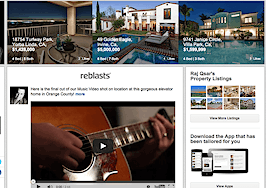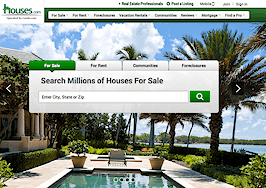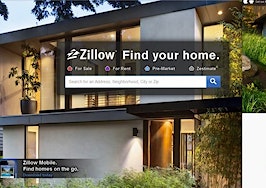Real estate agents who now may gaze at their Excel spreadsheets and Facebook groups with a mix of confusion and disdain when considering their current choices for managing referrals will soon have a more sophisticated alternative.
Balcony, a referral platform set to launch in public beta later this summer, allows agents to search for, rate and review referral partners, track deals, receive referrals and get paid around the action of sending a client to another agent.
Brands and networks have their own internal referral platforms. But Balcony’s founders are out to democratize the process by making a referral engine available to the industry at large.
In doing so, Balcony joins a wave of startups harnessing the power of the Internet to nudge the real estate industry more fully into the cloud-computing, mobile, transparent age.
Real estate referrals now can be a maddeningly uncertain process, leaving agents with questions about the quality of service the clients they send on might be getting, how the deal is going, and if and when they’ll get paid.
“There has to be a better way to do a referral,” said Gabe Rodriguez, Balcony’s CEO and co-founder, of inspiration for the startup. The current referral process is a gamble, he said.
There’s no easy way to vet an agent or ensure payment for a referral, for example, so demand for referrals outweighs supply, Rodriguez said.
Just 4 percent of buyers and 4 percent of sellers said they were referred to the agent they eventually did a deal with by another agent, according to the 2013 National Association of Realtors profile of homebuyers and sellers.
Rodriguez saw the same low referral percentages at the Corpus Christi, Texas-based brokerage Baxter Brooks Real Estate, where he is a managing director.
That relatively low number doesn’t represent a dearth of agent interest in doing peer-to-peer referrals, Rodriguez said. It reflects the presence of roadblocks in the current process that technology like Balcony’s can remove, he said.
In polling Baxter Brooks’ agents and thousands of others across the U.S., Balcony found that agents want to do more referrals, but some consistent pain points exist around questions like:
- Who am I going to send a client to?
- Do they have the experience in the transaction type my client is looking to perform?
- What’s the agent’s reputation?
- How am I going to be kept in the loop?
- How will I get paid?
Other firms, too, are out to solve this inefficiency and uncertainty around referrals with platforms built for the modern era.
RESAAS, which bills itself as real estate’s social network and is restricted to licensed agents, was built to help agents generate connections that lead to referral business. Agents can search for potential referral partners on the platform by geography, brokerage and group.
The 5-year-old platform gained traction this year with deals to operate private social, referral networks for several large real estate organizations, including Canadian-based brokerage, Sutton West Coast Realty, the Asian Real Estate Association of America (AREAA) and the Fox Valley (Illinois) Association of Realtors.
In March, RESAAS began powering a global multilanguage, multicurrency referral network for franchise giant Re/Max in March, helping the brand’s over 90,000 agents worldwide do deals with each other by translating listings and communication in 28 languages, 44 currencies and multiple units of measurement.
Realogy’s luxury brand, Sotheby’s International Realty, brought on real estate tech firm Immobel to launch a new referral platform in June that allowed it to retire paper from its referral process, keep track of referral deals in one view, ensure proper protocol, and to secure automatic language and currency translation of referred deals among its 700 offices in 54 countries.
How it works
Balcony vets agents on the platform by verifying they’re active and in good standing with their state’s licensing body, Rodriguez said.
Agents looking for a referral partner can search by location, transaction type, brand affiliation, neighborhood focus, property price point, and how they’re connected on Balcony.

A balcony agent search surfaces agents by location, showing how they’re connected on Balcony, their Balcony rating, and whether they’re verified and available.
Agents can see specific info about other agents on the platform, including their past deals and how they’re connected to them on Balcony and other social networks like Facebook, and whether they’re verified or available.
There’s also a referral-focused social network in Balcony. Agents can connect with and message each other on the platform. They can also endorse each other for specific real estate-related skills, and rate and review each other if they’ve done business together on the platform.
Agents on Balcony can rate their referral partners on four separate five-star scales. The scales include a rating for agents’ overall performance, and for their communication, professionalism and client satisfaction.
Agents who have not done a deal together on Balcony can’t rate or review each other, and consumers never have access to them or the agent profiles, Rodriguez said. In addition, all agent reviews on Balcony are monitored by a human.
Balcony surfaces the transaction history of other agents on the platform to help agents choose the right referral partner. It shows how many deals agents have done and the average sale price of homes they’ve helped sell.
Where it gets multiple listing service data, Balcony will use it to both populate the agents’ transaction history info and verify agents (they’ll be labeled with a “verified” tagline).
MLS data also allows Balcony to show the Balcony community a redacted view of the last three or four houses the agent has sold, said Tracy Weir, Balcony’s chief marketing officer.

Agent profiles on Balcony include ratings and reviews from peers. Only agents who have done deals together can rate and review each other.
Where it doesn’t have MLS licenses, Balcony allows agents to enter their own transaction history information, which will not be verified by the platform.
Balcony users will have the opportunity to flag suspicious transaction data and other info on the platform to help ensure accuracy. The peer rating and review feature also helps add a self-policing function to the platform.
Currently, Balcony licenses data from California Regional MLS, the largest MLS in the U.S., and a handful of other MLSs across the U.S., Rodriguez said.
During the referral partner search process, agents can save up to five agents they might want to refer a client to and compare them.

Agents can compare up to five potential referral partners side by side. They can send a referral to all or just one agent.
Agents can compare up to five agents side by side in the platform. It shows their lifetime deals, those done at more recent intervals, the designations they have, whether they’ve been endorsed by other agents on the platform and who endorsed them, and the geographies they focus on.
Agents referring a deal can send the referral to all five agents. The first to respond gets the deal. Or they can just send to one.
Agents on the receiving end of a Balcony referral can review the lead before accepting. As part of the referral, Balcony provides an estimated commission amount and shows a redacted view of the client’s information.
If agents decide to accept a referral on Balcony, they sign a referral agreement and then get access to the potential client’s full information.
One of Balcony’s key value propositions is that it allows referring agents to stay in the loop the entire duration of a referral, Rodriguez said.
They can set up their Balcony account to send periodic progress updates on deals they’ve referred via text or email. The progress report notes whether the deal in question is active or under contract, or if the contract has been cancelled, accepted or terminated.
Balcony also features a dashboard that allows agents to track their referral income through Balcony and the deals they have in their pipeline.

Balcony features a dashboard for agents where they can monitor all their deals on the platform.
Balcony is licensed as a brokerage and collects 10 percent of the referral commission for deals done through the platform. Agents who receive a referral through Balcony pay a 30 percent referral fee to Balcony. Balcony sends two-thirds of that to the referring agent and keeps one-third.
The future
Though it’s launching in beta as an agent-focused referral platform, Balcony’s long-term vision is to power referrals for brokerages, Rodriguez said.
The firm’s building out a broker dashboard that gives a firm a broad look into all the referral deals they have in their pipeline along with the money associated with them, Rodriguez said.
“The broker product is a top priority,” Rodriguez said. The firm will offer both white-labeled and enterprise-level solutions, he said.
Balcony is currently taking reservations for access to its platform on its home page, through its iOS mobile app and via social media and email marketing, Rodriguez said.
Balcony will be opening up a funding round in the next couple of weeks, Rodriguez said.




